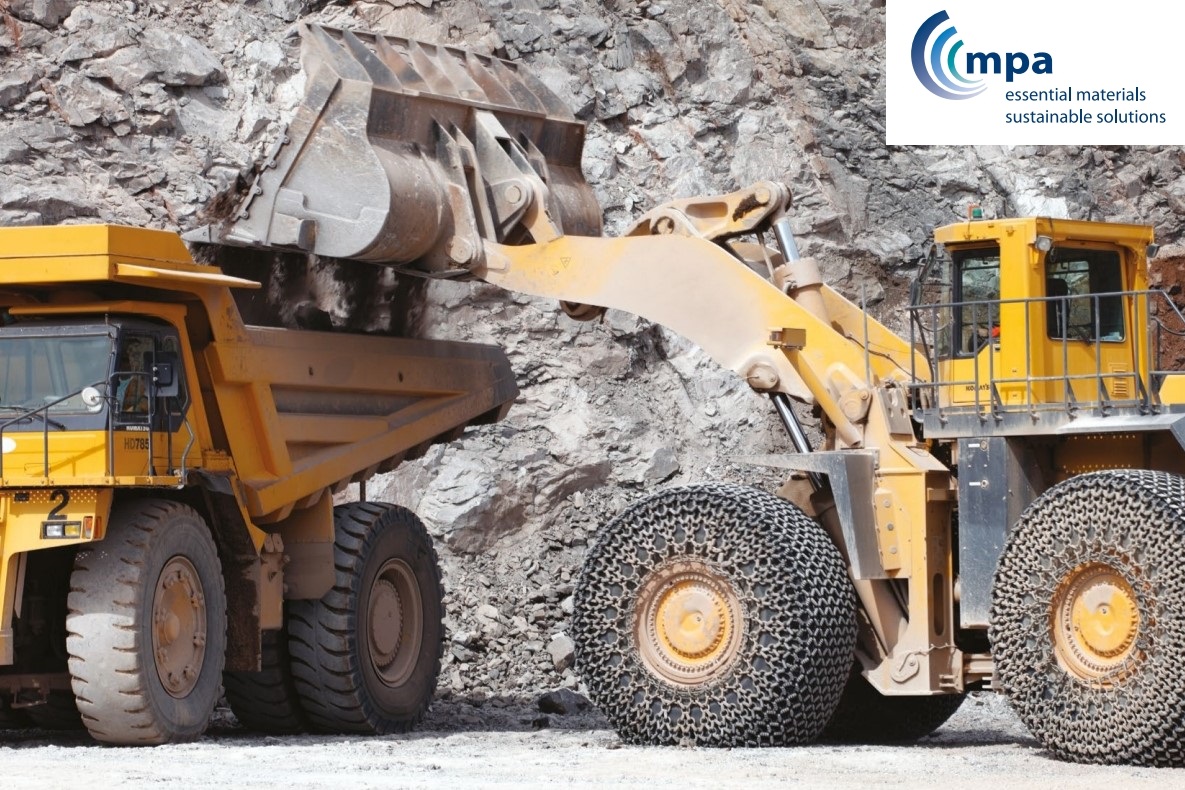
The Mineral Products Association is warning that the future supply of construction materials is ‘approaching a cliff edge’ and urgent action is required by the Government to address diminishing reserves of the UK-sourced minerals that are essential for housing and infrastructure.
In its latest Annual Mineral Planning Survey (AMPS) report, the MPA says Britain has an abundance of essential mineral resources and is almost entirely self-sufficient in meeting the 250-million-tonne-a-year demand for materials, 30% of which comes from recycled or secondary sources.
However, for more than a decade the rate of consumption — mainly for construction — has not been matched by the rate of approval for new planning consents for quarrying, due to what the MPA describes as a ‘broken’ mineral planning system that often allows local interests to be prioritised above national need.
Between 2014 and 2023, for every 100 tonnes of sand and gravel used in Great Britain, an average of 61 tonnes of new permissions have been granted. And for crushed rock (such as limestone and granite) the figure is even lower, with only 33 tonnes of new material consented for every 100 tonnes consumed.
The MPA warns that this situation is not sustainable in the medium term, especially given the Government’s ambitions in housebuilding and energy infrastructure. The country could face negative consequences both economically and environmentally if the current issues are not addressed as part of the Government’s planning reforms.
Like the country’s geology, the picture varies between regions, with areas that have traditionally been nationally important ‘strategic’ suppliers, such as the East Midlands and South West, seeing significant shortfalls over the last 10 years. The South East of England consumed three times the volume of new permitted reserves for sand and gravel, while the East Midlands saw materials sales 18 times the volume of new permitted reserves.
Looking ahead, MPA economic analysis indicates that between 3.8 and 4.1 billion tonnes of aggregates will be required over the next decade to support the country’s construction needs. Maintaining the sustainable and cost-effective supply of these strategically important materials will require active management, planning and investment, supported by regular surveys and up-to-date data to monitor performance.
Mark Russell, Executive Director at MPA, added: “Our survey shows the availability of essential minerals is fast approaching a cliff-edge. If the long-term trend of diminishing reserves from local domestic sources continues, it is inevitable that the tensions involved in maintaining future supply will be exacerbated.
“In turn, this will result in increased costs to supply, but also increased energy consumption and emissions, as materials will have to be transported over ever-growing distances to fulfil demand.
He added: “An increasing number of planning applications appear to be being refused against local authority planning officer recommendations. Consequently, the mineral products industry is increasingly having to plan by appeal, as was the situation in the 1990s. Nothing gets built without minerals and that’s why we’re asking the Government to include mineral planning as an integral part of the proposed planning reforms.”










